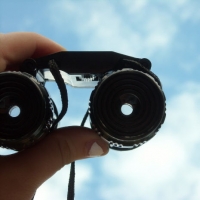Don't Want to Help the Government Snoop? You May Not Have a Choice

A lot of noise has been made about the National Security Agency's (NSA) gathering of information from millions of US citizens via hacking methods. Just how the NSA is acquiring this data is understandably coming out slowly since the US government isn’t too interested in sharing its secrets.
While some hacking techniques involve the obvious trick of installing tracking software or even malware, The Wall Street Journal recently detailed a somewhat sneakier method:
The bureau can remotely activate the microphones in phones running Google’s Android software to record conversations, one former U.S. official said. It can do the same to microphones in laptops without the user knowing, the person said. Google declined to comment.
The official did say that this method in particular is typically used only “when other methods won’t work” and when the bureau doesn’t “have any other choice.”
This method may give many the creeps, but Rose Gottemoeller, head of the State Department’s Bureau of Arms Control, detailed earlier this year how the future of surveillance includes being able to access data from mobile devices to monitor the use and movement of nuclear weapons.
From Ars Technica:
Gottemoeller mentioned a few ways that public verification could be employed, such as using mobile phones for nuclear explosion detection. Accelerometers (the sensors that flip the screen’s orientation when it’s tilted) pick up vibrations and can be used to track earthquake tremors. Another example was illustrated by one of the audience members at the event. He helped develop the Gamma Pix App, a smartphone app that looks for gamma ray artifacts, and is currently working on sensor aggregation for Improvised Explosive Device detection in Afghanistan.
Gottemoeller credits a younger generation “bursting at the seams to try new ideas” as one of the motivators behind trying these strategies.
Time will tell whether US citizens are given the option to opt-in or opt-out of allowing the US government access to their devices for this purpose. Though, if as in the case of the FBI’s accessing of microphones and cameras, “other methods won’t work,” I’m willing to bet all mobile devices will be monitored in some fashion in the future.
Should the US be required to get mobile device owners’ consent before accessing data, even if it’s for a “good cause?” Should we have a say in allowing the government to protect the citizens in the most technologically advanced ways possible?

